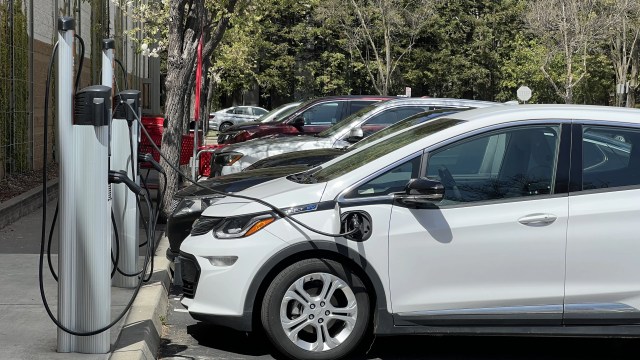CSP Insights
Your go-to source for the latest in news and information.
Charge Ahead: Why Your Next Car Should Be Electric
Discover the future of driving! Uncover why going electric is a game-changer for your wallet and the planet. Charge ahead today!
5 Reasons to Make the Switch to Electric Vehicles Today
Switching to electric vehicles (EVs) is becoming more appealing than ever. Here are 5 reasons to consider making the transition today:
- Environmental Benefits: EVs produce zero tailpipe emissions, significantly reducing air pollution and your carbon footprint. By choosing an electric vehicle, you're contributing to a cleaner, healthier planet. For detailed information on the environmental impact of EVs, visit Energy.gov.
- Cost Savings: While the initial cost of EVs can be higher, they often save owners money over time due to lower fuel costs and minimal maintenance requirements. According to Consumer Reports, EV owners can save thousands over the lifespan of their vehicle.
An additional reason to switch to electric is the advancements in technology. Modern EVs come equipped with cutting-edge features, including autonomous driving capabilities and smart connectivity, enhancing the overall driving experience. For insights on the latest electric vehicle technologies, check out Forbes. Furthermore, as more charging infrastructure is developed, finding a place to charge your EV is becoming increasingly convenient, making the switch even more viable.

How Do Electric Cars Compare to Gas Cars: A Comprehensive Overview
When comparing electric cars to gas cars, several key factors come into play, including environmental impact, cost of ownership, and performance. Electric vehicles (EVs) produce zero tailpipe emissions, significantly reducing air pollution when compared to traditional vehicles powered by gasoline. Additionally, the cost of electricity is often lower than gasoline, which can lead to substantial savings over time, particularly as battery technology continues to advance. In fact, a typical electric car can save drivers thousands on fuel and maintenance costs over the lifespan of the vehicle.
In terms of performance, electric cars provide instant torque and a quieter driving experience, making them an attractive option for many consumers. However, gas cars may still hold an edge in driving range and refueling time, with most gas stations readily available for quick fill-ups. As technology evolves, the charging infrastructure for electric vehicles is improving, with fast chargers enabling longer trips. For those considering the switch, it's essential to weigh all aspects, from sustainability to hidden costs, to determine which vehicle type best suits their lifestyle.
What You Need to Know About Charging Infrastructure for Electric Vehicles
As the electric vehicle (EV) market continues to expand rapidly, understanding the charging infrastructure for electric vehicles is crucial for potential buyers and current owners alike. Charging infrastructure refers to the network of equipment and facilities necessary to provide electricity to electric vehicles. Key components include charging stations, which can be found in public places such as shopping centers and highways, as well as at home. To fully harness the benefits of EVs, it's essential to stay informed about the types of chargers available, including Level 1, Level 2, and DC fast chargers. For a deeper understanding, check out this informative guide from the U.S. Department of Energy.
Moreover, the availability of charging stations significantly influences the adoption of electric vehicles. Cities and businesses are increasingly recognizing the importance of investing in EV charging infrastructure to promote sustainable transportation options. Government incentives and grants are often available to support these developments. Additionally, charging station accessibility is vital for long-distance travels, as well as for those who rely on public charging solutions. To explore current trends and government initiatives in promoting EV infrastructure, you can refer to this insightful post on Plug In America.